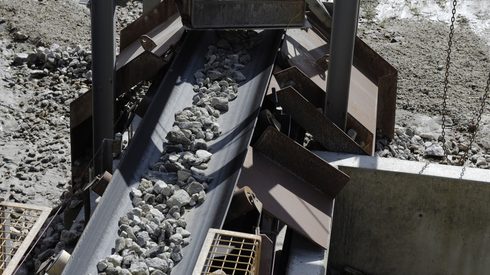Chinese consumers have booked at least four bulk cargoes of Japanese plate and structural (P&S) scrap – which is known as HS in Japan – since China relaxed its scrap import restrictions on December 31.
Sources said that these early trades are viewed as nothing more than trial shipments by market participants who are dipping their toes into the new market.
China’s importers received offers of Japanese HS at $480-500 per tonne cfr this week, with bids heard as high as $450 per tonne cfr. There was even market chatter of a deal done at $500 cfr China for P&S late on Friday, but this could not be confirmed at the time of publication.
China has been slow to book subsequent deals due to a large disparity between domestic prices and international scrap prices, market participants said.
Fastmarkets’ assessment for steel scrap heavy scrap domestic, delivered mill China and including VAT, was 3,000-3,130 yuan ($464-484) per tonne on January 8, widening upward by 40 yuan from 3,000-3,090 yuan per tonne on December 31.
But based on these local prices, market participants estimate workable import prices for Chinese buyers as no higher than $420 per tonne cfr, which meant business with mills in markets such as Vietnam and South Korea has been much more appealing to Japanese sellers this week.
“Everyone in Japan is targeting $500 cfr China for HS but we sold material to South Korea instead because we thought they had a better price at that time,” a Japanese scrap supplier said.
Fastmarkets’ price assessment for steel scrap, P&S, export, fob main port Japan was ¥47,000-49,000 ($454-473) per tonne on January 6, widening upward by ¥1,000 per tonne from ¥47,000-48,000 per tonne a week earlier.
“There is no chance to make a deal in the short term,” an importer in eastern China said.
Chinese trading houses and most steel mills are taking a “wait-and-see” approach. Several steelmakers are shopping around for reliable suppliers for future business opportunities but do not plan to book any cargoes in the near future at the current high offer levels, Fastmarkets understands.
China domestic
The supply of scrap in the China domestic market is getting tighter due to the transportation interruption in the cold weather, but steel mills’ demand kept strong, market sources said.
An industry analyst in Shanghai said the utilization rate of electric arc furnace was at 74% in eastern China and that for blast furnace was 91% in the region.
“Both are at a high level, so mills need to make regular purchases of steel scrap,” he said.
Mills are replenishing inventories gradually for consumption in February when truck drivers take holiday to celebrate Chinese New Year. The national holiday will take place on February 11-17.
“The steady demand will support scrap prices,” a trader in eastern China said.
Fastmarkets is proposing to launch a daily price assessing heavy scrap on a cfr China basis to enhance its growing editorial coverage of the Asian market for the steelmaking raw material. Click here for the details of the proposal.




